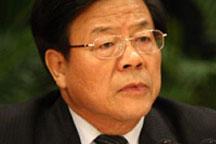Minister Talk: Culture Minister on culture revitalized in modern times
2009-10-12 11:05 BJT
Watch Video

 Play Video
Play Video
Sixty years of the People's Republic of China have seen a process from cultural isolation to revitalization. The country has experienced ups and downs in cultural reform. But it has found ways to build a market-oriented cultural system, while making its traditional and modern culture more accessible to the general public. In today's "Minister Talk," we meet with the Chinese Minister of Culture, Cai Wu, who shares his view on the path of China's cultural development.
Chinese culture is known for its diversity and long history. But it failed to develop in the decades of war before the founding of the People's Republic.
In 1949, the year that New China was founded, delegates from art and literary circles gathered in Beijing for the first national representative conference. That conference set the guidelines for cultural policy in the People's Republic, indicating that arts and literature should "serve the people."
It was also the year of Cai Wu's birth. Sharing the same age as the nation, Cai has experienced every step of the country's cultural progress.
Cai Wu said, "Cultural building efforts in the 17 years before the Cultural Revolution laid the ground for cultural development after the Cultural Revolution ended. The country set up a primary public cultural service system, covering most rural and urban areas across China. For example, the houses of public arts and culture expanded to all counties, and workers' cultural palaces and workers' clubs were opened in every city. With these, a cultural infrastructure system was built across the country."
The ten years of the cultural revolution from 1966 were a devastating cultural disaster. But due to the reform and opening up policy, the country's cultural system was rebuilt and revitalized. Since then, cultural fields have been at the forefront of the reform wave. They were the first to abandon the traditional development mode, and open up to the outside world.
Cai Wu said, "I still remember Deng Xiaoping's address in 1979 at the fourth national conference of representatives from arts and literary circles. The title of his speech was the spring of arts and literature. He said that in the direction of socialism, all kinds of styles and schools can develop freely. And that innovators, artists, and writers have the freedom to think and create. This was an exciting call, which brought springtime to the cultural area."

 Mail
Mail Share
Share Print
Print


 Video
Video









 2009 China Central Television. All Rights Reserved
2009 China Central Television. All Rights Reserved